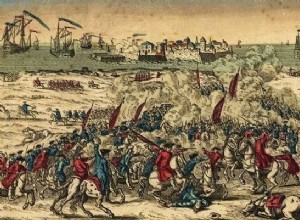Portugal maintained neutrality at the start of the Seven Years War. However, the action of the British fleet in its territorial waters provoked the hostility of France and Spain and in 1762 Spanish troops invaded the country. The Spanish and French considered the Portuguese Army completely unprep




